Following the news of Osama Bin Laden’s death, Twitter once again celebrated its CNN-moment. This isn’t its first however, which actually seems to be news to emerging media pundits. The new reality of a real-time world is that news no longer breaks, it Tweets. We are the architects of a new media alert system, TNN – the Twitter News Network. And, because of us, we have set a foundation for which news media can more effectively track, check, and report on breaking stories as they unfold.
We are connected, we are the new wire…
As I shared with Jon Swartz of USA TODAY for his story…
When Sohaib Athar (@ReallyVirtual on Twitter) inadvertently live tweeted the Osama Bin Laden raid, the Twitter News Network (TNN) proved once again that it is the live wire for everyday people to break news. When Keith Urbahn @keithurbahn published the first credible report that the U.S. killed Bin Laden, TNN was also the people’s news source. Is it the biggest event in social media? It is among them, but that’s not the point. What it does signify however is that the gap between events and reporting is where Twitter shines as a human seismograph. This is yet another example of the importance of social media and the role it plays in monitoring the pulse of world events.
Twitter isn’t journalism, but it is a perfect beast for committing acts of journalism. Long before the news media and as President Obama was learning about the details of the events in Pakistan, individuals following @ReallyVirtual, @mpoppel, and @keithurbahn witnessed first hand as the operation developed and the real news emerged.

There are countless stories that already unravel the Tweets to show how Twitter was well, just being Twitter…a conduit for us to share our experiences as we experience them. Instead, I would like to focus on you, me, and how the magic of shared experiences in social “me”dia come alive in what I refer to as the information divide…the space between an event and when media fact check and officially report it.
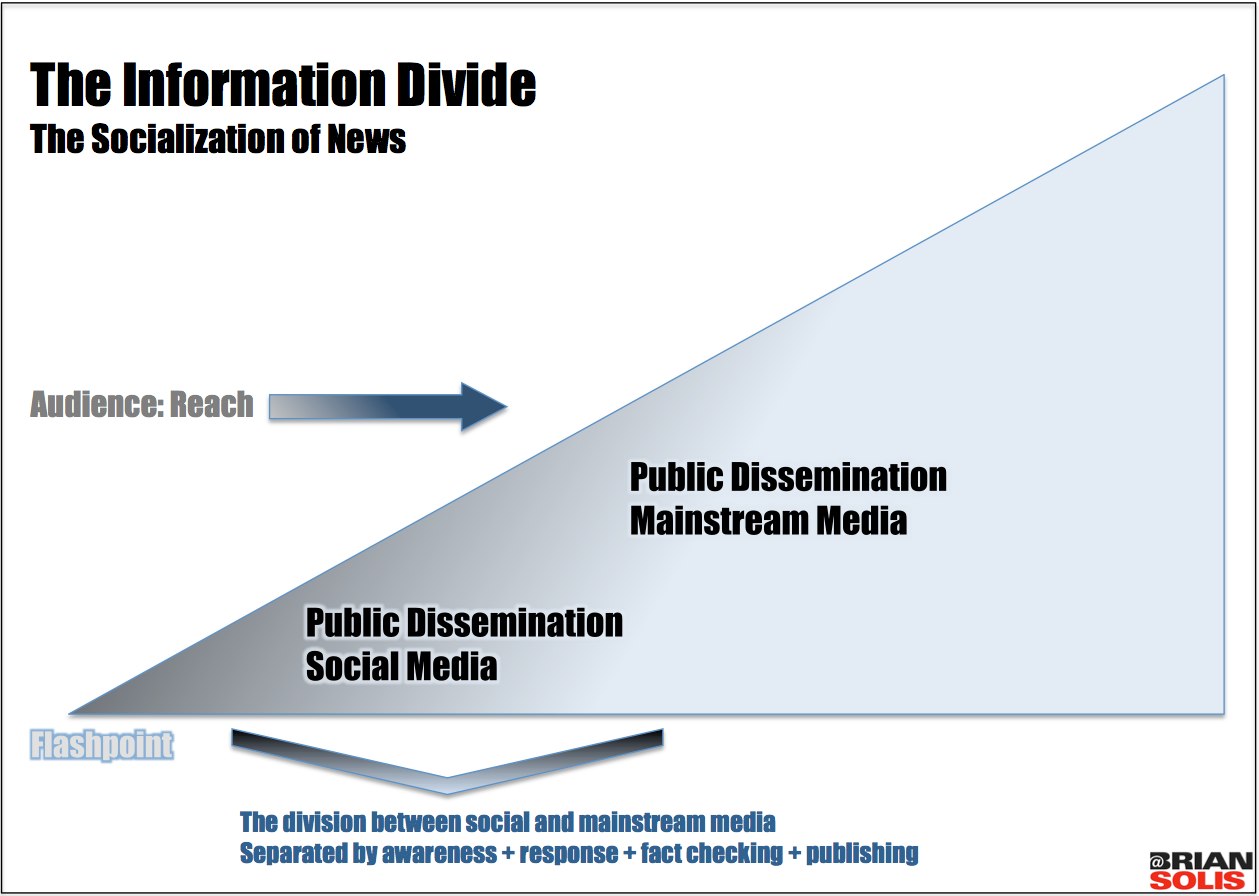
We are literally making the world a much smaller place. Tied to connectedness, Twitter is equally magnificent at merging reach and velocity. The ability to propel news as reported by everyday people around the world in minutes consistently is as wonderful as it is surprising. And if words are a gateway to one’s soul, in the digital realm, they are the portage to insight and analytics. Shortly after the hail of Tweets, Twitter published an interesting data report that demonstrates the breathtaking volume of our ability to share what moves us.
The Bin Laden news peaked at 11 pm EDT with 5,106 Tweets per second (TPS) following the all time TPS high set by NYE 2010 at 6,939 TPS. Most notably, According to Twitter, the news event held the highest sustained rate of Tweets to date, hitting 3,000 TPS between 10:45 and 2:20 am, climbing to 38,7 million tweets in just 3.5 hours.
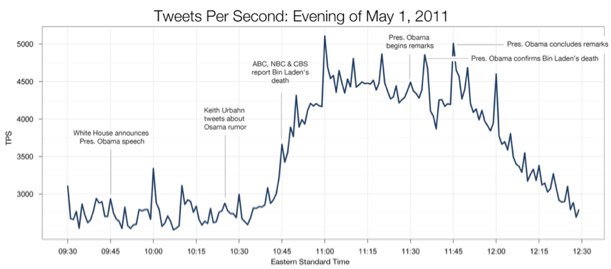
Social media monitoring and analytics platform Sysomos published data that was equally revealing.
In less than 12 hours since the tweeting began we saw almost 40,000 blog post and news articles and an astounding 2.2 million tweets all talking about Osama Bin Laden. As well, while no surprise that people in the US were talking the most about this event a look at our geo-location map shows us that people all over the world were tweeting about the news.
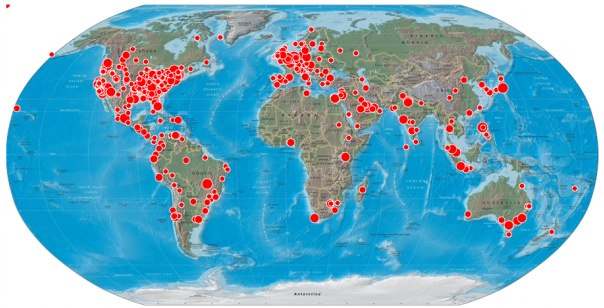
Twitter and social media bestow you and me with a platform to become extraordinary – even if for but a moment. We now possess freedom of Tweet, which represents nothing less than the beginning of the end of the era of #commandandcontrol
We will not be silenced.
p.s. Congratulations Will & Kate. While we celebrate in this news, we also celebrate your marriage, your love, and the hope it gives everyone around the world that a market for “happily ever after” does indeed exist.
More on the evolution of news and journalism…
Interview with Dan Farber, Editor-in-Chief of CBSNews.com
Interview with Katie Couric
Connect with Brian Solis on Twitter, LinkedIn, Facebook
![]()
___
The New ENGAGE!: If you’re looking to FIND answers in social media and not short cuts, consider either the Deluxe or Paperback edition

___
Get The Conversation Prism:

___
Image credit: Shutterstock
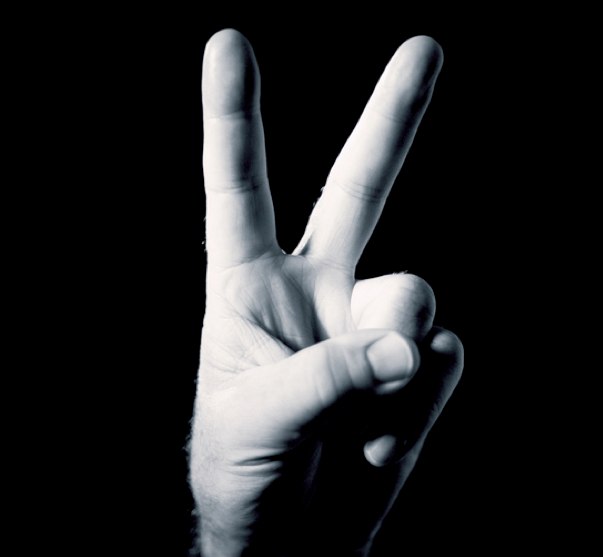
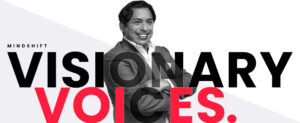

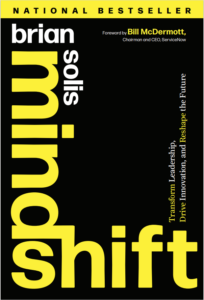


You’re right! The world is becoming a much smaller place and we’re shrinking it even more so. Or is it localizing it more? Excellent graphs here.
Joe, it’s both! Localization is the next stage.
It is truly fascinating to watch news such as this break on Twitter. In fact, more than once I’ve tipped off the media to the stories brewing on Twitter, and I can pretty much guess when something will end up on CNN by how quickly it spreads on twitter and if the topic lasts for more than, oh, 10 minutes (which is like 2 hours in twitter time).
Love the TNN = Twitter News Network. The only problem is that rumors can spread as quickly as news on Twitter and very few people do their own fact-checking before RT. Twitter is fast, but not always correct. Thanks for the post.
Missy…yes. But traditional media is already surrounding 1.0 of the wire and is now starting to dedicate attention toward TNN. Factchecking is expedited. Keep up the good work by the way!
The spread of the Bin Laden news was absolutely astounding to watch. All of a sudden my Twitter stream just filling up with tweets about. Then, before some of the major networks even switched to coverage I saw all the worldwide trending topics change in a matter of seconds. It really hit me though when I started tracking the numbers in Sysomos. In mere mins the tweet count would rise 100,000 tweets.
It really does prove that social media is fast at spreading news and give us a good feel for what’s on the world’s mind.
Great post Brian.
Cheers,
Sheldon, community manager for Sysomos
Excellent article, Brian. I’ve been trying to explain to others for months now that Twitter isn’t just “some place where you can talk about what you had for breakfast.” I’ve given a countless number of examples showing the ways that Twitter can be – and IS – just as crucial (if not more so) than “mainstream” media. My favorite example is a personal one from last summer: I warned my parents about a huge tornado headed their way before the Weather channel did, thanks to Twitter.
Wow. I can’t tell you how timely this comment is…thank you!
Looking at this through the lens of my journalism degree, I have to think that news still breaks. It just breaks through tweets as opposed to front-page articles. While a lot of the initial chatter on this, earthquakes, tornadoes, bombings etc… happens on Twitter, we still all turn to newspapers and cable news for confirmation. Journalists are still doing the work of reporting, interviewing sources and working the phones to release information. Does Twitter greatly affect the reach, interactiveness and participation in the news gathering and reporting process? Absolutely. It also creates an ad hoc network of citizen journalists that are telling stories while journalists work to gather facts, context and deeper information.
I guess we can now consider Twitter a ‘Breaking News’ ticker, rather like on traditional media websites. Meaning it doesn’t supplant journalists, but supports then, providing awareness for and interest in their stories? With the Bin Laden news, Twitter was my alert but the BBC provided the facts (thus, Missy B, disseminating the rumours).
Does this show journalists why we should embrace rather than fear TNN? What are your thoughts here, Brian? I’m a motoring journalist and thrive on Twitter for information, but the scale of its use in Breaking News is still developing in my industry…
Richard, a well spoken comment. TNN is indeed complementary. In your field however, linking the audience with the newsmakers is the information divide that will only expand over the years. You are on early side of the cusp, it will catch up to you. More importantly than feeding you news, I believe TNN also feeds you as a person as it does all of us. Thank you…let’s keep paving the way.
Early in the Bin Laden event, Twitter seems more about observing, rather than reporting. @ReallyVirtual was simply sharing what he was seeing, not knowing what it really meant. It took him a while to realize he was watching history unfold. It was sort of like “accidental” journalism.
Tim, this is why I believe the future is tying shared experiences and qualifying them toward relevance….as was the case here.
Over the past year, I have come to rely mainly on Twitter for my news and less on traditional outlets. I believe you hit the proverbial “nail on the head.” @ReallyVirtual was an “accidental” journalist. He was simply tweeting what he was observing — I think anyone of us would have done the same thing. I did it when the US Airways plan crashed in the Hudson River in 2009.
I understand Stone’s trepidation of officially becoming a social news outlet. I do think that Twitter should at least unofficially foster a journalist Twitter channel — whether they are legitimate, citizen or accidental.
Interesting piece, thoughtful comments. A correction, though… all reports indicate the President and staff were following the raid in real time through audio if not video. Nothing was being observed, let alone tweeted, before they knew about it.
Jeff, thank you for this comment. Well said. Updated…
Thanks for the article. It reinforces my feeling of curious awe that something different is happening. And it’s happening fast. Business Insider had an article this morning called “Twitter Just Had Its CNN Moment”, which crossed my mind all day and triggered thoughts about how to better sift through the stream of information that is getting more and more convoluted with both news and opinion. Won’t there be a natural software evolution that will allow us to be choosier about what we read, based on some kind of fabulous algorithm that can make that decision for us? How do we vet our source of news information to know that Sohaib Athar is really seeing helicopters hovering at 1 a.m. and that it’s a rare occurrence so something must be amiss? How will we sort through the stream of hundreds or even thousands of voices that we follow?
I’ve previously pondered the idea of an internet “journalist” rating that could work like a site badge that is granted only to people or organizations who meet the criteria of journalistic integrity as perceived by some central organization, possibly similar to ICANN. But that sounds very similar to the old Underwriter’s Laboratory product stamp that came to mean not much more than a paid for seal-of-approval. So what then? What will this shift in information sharing evolve to become?
I wonder if this is how those involved in the radio industry felt when television and live video was about to put a television in every household? Where do you think this is headed, Brian?
Fascinating thoughts, Natalie, particularly as a journalist myself. I’d happily consider for such a badge or similar: it would add focus to my Tweets, as I would be aware of the extra scrutiny and responsibility.
Would this lead to the further professionalisation of Twitter, though – losing the stream-of-consciousness freedom, as each Tweet would effectively be publishing, rather than speaking freely?
Publishing vs. speaking freely. Yes, that’s a good question. Will some sort of process evolve organically, just as how in a small town you learn to know whose “news” is gossip? Or will it be contrived via badges or ratings? I currently witness a news delivery rivalry first-hand in my small town. The weekly newspaper, 100 years old, competes for readership with an online “daily news” site, a one, sometimes two-man operation that makes lots of advertising revenue by showing up at meetings and reporting their take on the story, often inciting community divisiveness among our 10,000 or so county residents.
But what source is better – the local guy who’s reporting it like he thinks it needs to be told, or the century-old newspaper with trained journalists on staff who takes a conservative “I don’t want to piss anybody off” approach to report safe, albeit backed by sources, news. Will the line between news from CNN or the New York Times and Joe Blow’s blog continue to blur and eventually all be part of “the news”? Or will sites like Twitter begin to mechanically sort them out for us?
Maybe the question is to us as individuals: will we be the town gossip and spread any exciting news as soon as we hear it, or will we hold ourselves to a higher standard of integrity, know our sources, check facts if neccessary, and be aware of our voice?
All of this instant online interconnectivity amazes me. It’s like having the ability to whisper important information into millions of ears around the world within hours or even minutes. Will that kind of communication advancement lead to closer relationships, or melt in to white noise and diluted messages?
Fascinating views Natalie, thanks. Certainly, while I’d like to see it evolve organically, I wonder if the sheer size of Twitter makes this too challenging. And, if it DID develop thus, whether those with the power may develop a business sense over and above what Twitter originally intended…
As for sources, I try a combination of both: it’s my intention to involve followers in news as it happens, rather than serving as a stoic RSS feed. This is something that works well in the car industry, where enthusiasm for snippets of information is high. Followers often help in the creation of stories, with background and other information, making it more fascinating still.
A considered town gossip who’s mindful of their audience and their sources would be the ideal, I think. Sounds not unlike a journalist, that…!
The big question is, as you say, filtering the noise. Surely work is fast advancing here? Can’t help but think simple lists and Twitter deck filters are rather blunt instruments…
Twitter is the voice of the world.
Great article Brian! I was just telling a friend about how Twitter is great for breaking news.
I first heard about the bin Laden news via a text message from a friend. I immediately went to Google’s Real Time search (which posts tweets) and I saw the string of tweets coming in every couple of seconds about Osama’s death. It wasn’t until after this that I looked to the major news sources. Twitter has become my go to source for up to the minute news.
As an avid “consumer” of news (not a journalist) I like it curated. Although I understand the potential timeliness of eye-witness citizen journalism, the receiver of the information may not always be tuned to Twitter at the exact time that the news breaks. Until it is “trending,” I may not see it. The stream moves so fast and is so clogged with miscellaneous unrelated stuff.
In this world of information overload, I appreciate some sorting, verifying and “predigestion” by trusted authorities, whether they be online of off.
I totally agree with you. Twitter is the new “breaking news” tool now and will be in the future
By the way, Brian, I certainly appreciate the excellent and thorough reporting you did in this post. It s well researched and curated. You make some good points about the state of social media and the extensive reach of crowd sourcing.
Thank you Buddy. I really appreciate that feedback.
I wasn’t online at the time but jumped on quickly as the story broke. Around my friends, the story broke via text, FB and yes tweets; that sent us online. Google news didn’t have much, other than pending press conference. CNN was doing their thing.. but the tweets were a flying, all sorts of ‘news’ easily shared via Tim’s TNN. Gini Dietrich also did a good post on this yesterday, just amazed at the speed of this. Think it’s that plus the simplicity of sharing factor that are part of what connects the dots. FWIW.
It is only after the fact (more or less) that people learned about @reallyvirtual and what he did. How many news organizations (or people) picked up on him as it was happening? The answer is likely none for news, perhaps a handful of people.
My points?
1) The vast vast vast majority of the population heard of the news through traditional media
2) The average Twitter user has what (20-50 followers, if that?). Say that person sees a major event/crime etc. and reports it.
How long does it take for that information to travel as compared to the police getting a call, the media showing up and reporting. Certainly in some cases it can be faster, but by and large, I’d argue that much of what people are writing (or reporting if you want) floats to the bottom of the (Arabian) sea.
3) Quality vs. quantity. A lot of social media is justified by quantity (per the above tweets per second graph). Out of those 2.2 million tweets, perhaps 20-30 had new, useful information (mainly the people listed above)? Perhaps 10 of those useful information ones were uncovered to the American public?
4) I get what everyone is saying about @reallyvirtual and social media, but at the same time doesn’t that case study argue against the power of social media? He made observations (or “reported” if you want and nothing happened. We didn’t learn of the news any faster.
My final overall point….perhaps we have to define breaking. It “breaking” some guy tweeting to 150 followers and nothing happening or is “breaking” when that reaches the mainstream public?
As much as I like Twitter and find it’s ability to keep me updated on news awesome it seems that timing is everything regardless. The other night when the Bin Laden news broke the other day I had my phone by my side, and the TV on. In this case text messaging won when someone close to me texted me that the news was breaking. I should have asked where they saw it.
Thanks John, It would certainly be interesting to know.
Does news really break on twitter? The news already existed. It probably “broke” via word of mouth, texting and email like most things do. Twitter may help spread it faster, but it was already spreading well before the first tweet.
As a young-ish person people have always been baffled how standoffish I was in terms of social media, more specifically twitter. It seemed to me that in my personal life, I didn’t have much need for it and preferred more traditional types of interaction; however after reading this article (and more like it) it’s becoming more apparent that while I might not need social media in my personal life, it’s essential professionally. (I’m in PR.) With fewer journalists to pitch and the pitch market becoming overly saturated, twitter is a great way to make sure I’m pitching on trend and presenting story ideas that consumers would want to read/watch. Basing pitches (when possible, of course) on trending topics can also help to stay ahead of the traditional media stories. Those placement opportunities may be few and far between but nevertheless, certainly another resource to add to the arsenal.
Although Twitter and journalism are different, both Twitter and journalism are to communicate with audiences and send out messages. Twitters can be two way communication, but in most cases journalism is one way communication. Even in this case, twitter will never replace journalism.
Although Twitter and journalism are different, both Twitter and journalism are to communicate with audiences and send out messages. Twitters can be two way communication, but in most cases journalism is one way communication. Even in this case, twitter will never replace journalism.
Brian: many interesting observations to be found in the OBL tweetstorm! When I heard the president was calling an “emergency press conference” at 7:30PM Pacific, I did what I think many of your readers did: I reached for my iPhone. Twitter broke the story at 7:31PM. The mainstream media began talking about it at about 7:44PM. The story was over by the time the president found his way to the microphone over an hour later.
Another point is that while accidental journos may accidentally break stories, we still wait for known figures in the media to tell us what really happened. We still turn to the media. Old media isn’t dead – it’s just their old broadcast methods that we’ve found superfluous. There’s still a big role for authority here that the rest of us really can’t fill.
Thanks!
It was incredible to see Twitter hitting 5000 Tweets per second – it absolutely blew my mind when i spared a second to think of all that information being consumed and transferred. It’s only in the last few months I’ve really appreciated the true power of Twitter.
Not sure why it’s taken so long…
Cheers,
Matt
Indeed an interesting post – however does the ‘tweet’ community not get it’s source from the news – and then just ‘twitter’ about it?
The world of technology is always changing. Real time news is something that we have all come to expects. Twitter is just one outlet form the common person to be heard. This makes one wonder if traditional news stations will dwindle in future years. I think that there will always be a place for CNN and MSN because we want verification for the real time news we can access from a social network, but I do believe that their role is changing.
Great post… It is really really informative and a great read… Thanks for sharing…
I really hope that this can be the end of this debate because I don’t think it’s news any more that all the social media blogs should be writing about real world events. The likes of Mashable and Facebook blogs are essentially just news sites now as they go around reporting how “social media” broke the news. They are in fact just piggybacking on to mainstream traffic terms to try and increase their own traffic. We get it social media breaks the news! BTW not saying that about this post at all, you are spot on as usual 🙂
I really hope that this can be the end of this debate because I don’t think it’s news any more that all the social media blogs should be writing about real world events. The likes of Mashable and Facebook blogs are essentially just news sites now as they go around reporting how “social media” broke the news. They are in fact just piggybacking on to mainstream traffic terms to try and increase their own traffic. We get it social media breaks the news! BTW not saying that about this post at all, you are spot on as usual 🙂
Admittedly, I turn to twitter for real time news, though you certainly have to weed out the morsels of genuine information to those who are just spamming or posting unnecessary thoughts. Twitter is a great way to gauge interest, though it is necessary to keep abreast of what can probably be just a hoax to what is real.
We live in a society where it is a contest of who can get you news quicker. I believe, eventually, there will be a movement towards who can get you the news most accurately. It may take a few instances where people will be so quick to get the news out that they end up butchering an event, but I believe this will happen.